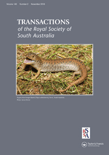
TRANSACTIONS OF THE ROYAL SOCIETY OF SOUTH AUSTRALIA
Scope & Guideline
Uncovering insights in anthropology, agriculture, and beyond.
Introduction
Aims and Scopes
- Biodiversity and Ecology:
Research that explores the diversity of flora and fauna in South Australia, including studies on species interactions, pollination, and the effects of environmental changes on ecosystem dynamics. - Geological and Paleontological Studies:
Contributions that examine geological formations, fossil records, and historical biogeography, providing insights into the Earth’s history and the evolution of life in the region. - Conservation Science:
Investigations focused on conservation strategies and the impact of human activities on natural habitats, emphasizing the importance of preserving South Australia's unique ecosystems. - Citizen Science and Community Engagement:
Studies that involve public participation in scientific research, highlighting the role of citizen science in biodiversity monitoring and environmental education. - Parasitology and Microbiology:
Research into the parasitic organisms affecting local wildlife, including detailed studies of helminths and their hosts, contributing to the understanding of disease dynamics in ecosystems. - Historical and Cultural Studies:
Papers that delve into the historical context of scientific discoveries, Indigenous connections to the land, and the socio-cultural aspects of science in South Australia.
Trending and Emerging
- Impact of Climate Change:
A growing number of studies are addressing the effects of climate change on local ecosystems, species distributions, and habitat viability, highlighting the urgent need for adaptive management strategies. - Citizen Science Initiatives:
There is an increasing trend toward involving the public in scientific research, with numerous papers focusing on citizen science projects that aim to enhance biodiversity monitoring and community engagement. - Conservation Genetics:
Research into the genetic diversity of species and the implications for conservation strategies is on the rise, aiming to inform management practices for endangered and endemic species. - Microbial Ecology:
An emerging interest in the roles of microbial communities within ecosystems, particularly regarding their interactions with larger organisms and environmental stressors, is becoming more prominent. - Land Use and Habitat Restoration:
Studies examining the impacts of land use changes and exploring strategies for habitat restoration and management are increasingly featured, reflecting a practical approach to conservation challenges.
Declining or Waning
- Traditional Taxonomy:
While taxonomy remains important, there seems to be a decreasing emphasis on purely taxonomic descriptions of species without broader ecological or evolutionary context. - Generalized Environmental Monitoring:
Research that focuses on broad environmental monitoring efforts without specific hypotheses or targeted studies appears to be less prevalent, as more focused and applied research gains traction. - Historical Archaeology:
Although historical connections to Indigenous cultures are still significant, detailed archaeological studies not directly linked to contemporary ecological or conservation issues seem to be less frequently published.
Similar Journals
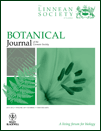
BOTANICAL JOURNAL OF THE LINNEAN SOCIETY
Cultivating Insights into Plant Biology and EcosystemsThe Botanical Journal of the Linnean Society, published by Oxford University Press, stands as a premier platform for interdisciplinary research within the realms of Ecology, Evolution, Behavior, and Plant Science. With a notable impact factor reflective of its esteemed reputation, this journal is classified in the Q1 quartile for both Ecology and Plant Science, placing it among the most influential publications in these fields. Since its inception in 1969, and with an anticipated convergence of research extending to 2024, it has become essential for scholars and professionals seeking to engage with cutting-edge studies, theoretical frameworks, and practical applications that drive our understanding of plant biology and ecological systems. The journal’s commitment to excellence is underscored by its robust Scopus rankings—achieving an impressive 83rd percentile in Ecology and a 82nd percentile in Plant Science. This makes the Botanical Journal of the Linnean Society a crucial resource for researchers, educators, and students alike, eager to advance their knowledge and contribute to the evolving discourse in botany and environmental studies.

NOTORNIS
Championing the study of birds for biodiversity.NOTORNIS is a prestigious academic journal published by the Ornithological Society of New Zealand, dedicated to advancing the field of ornithology and contributing meaningful research related to avian species. With ISSN 0029-4470 and E-ISSN 1177-7680, this journal has been a vital resource for scholars since its inception in 1982, continuously fostering discourse within the scientific community, particularly in the realms of animal science and zoology. Though it currently holds a quartile ranking of Q4, with a Scopus rank of #250 out of 490 in its category, NOTORNIS occupies a unique niche in ornithological research, promoting studies that highlight the ecological and biological intricacies of birds. This journal is critical not only to researchers and professionals in zoology but also to students and educators aiming to engage with contemporary avian research. As New Zealand's leading ornithological publication, NOTORNIS underscores the importance of avifaunal studies in conserving biodiversity and understanding ecological dynamics.
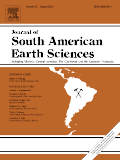
JOURNAL OF SOUTH AMERICAN EARTH SCIENCES
Exploring the Depths of South American GeologyJOURNAL OF SOUTH AMERICAN EARTH SCIENCES is a premier interdisciplinary journal dedicated to publishing high-quality research in the fields of Earth-Surface Processes, Geology, and Paleontology, making it an essential resource for scientists and researchers focused on South American geology and its diverse geological phenomena. Published by Pergamon-Elsevier Science Ltd in the United Kingdom, this journal has been instrumental in disseminating groundbreaking studies since 1988, showcasing contributions that push the boundaries of knowledge in Earth and Planetary Sciences. With an impressive Scopus ranking—positioning it in the 74th percentile for Paleontology and 71st for Geology—this journal not only reflects robust academic quality but also its commitment to addressing critical geological challenges in South America. Researchers will appreciate its objective of advancing understanding of geological processes while providing insights into past, present, and future Earth environments. Although available through traditional subscription models, the journal's vast repository of articles enriches the academic landscape, facilitating the sharing of vital research among professionals, students, and geological practitioners.
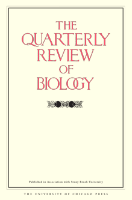
QUARTERLY REVIEW OF BIOLOGY
Cultivating Excellence in Biological ScholarshipQUARTERLY REVIEW OF BIOLOGY, published by University of Chicago Press, stands as a premier journal dedicated to the dissemination of high-quality research and review articles in the field of biological sciences. With an impressive impact factor and an esteemed ranking of Q1 in the Agricultural and Biological Sciences category, the journal is a vital resource for researchers, professionals, and students aiming to stay at the forefront of biological research and developments. Since its inception in 1945, the journal has evolved to cover a broad scope of topics, fostering interdisciplinary dialogue and providing critical insights that promote scientific advancement. Although currently not an open access journal, its reputation is underscored by a remarkable standing in the 95th percentile across Scopus rankings within its field. Located in Chicago, Illinois, this journal continues to be a cornerstone for scholarly communication in biology, making valuable contributions to both academia and practical applications in the biological sciences.

JOURNAL OF ORNITHOLOGY
Documenting the Diversity of Bird SpeciesJOURNAL OF ORNITHOLOGY, published by Springer Heidelberg, is a leading international journal dedicated to the study of birds and their conservation. With an ISSN of 2193-7192 and an E-ISSN of 2193-7206, this journal serves as a crucial platform for disseminating innovative research focused on avian biology, ecology, and behavior, making significant contributions to the fields of Agricultural and Biological Sciences and Animal Science and Zoology, where it holds a commendable rank of #156 out of 490 in Scopus. Established from 2004 and continuing through 2024, the journal strives not only to advance academic scholarship but also to inform practical conservation efforts globally. While currently not open access, it remains a vital resource for researchers, professionals, and students seeking high-quality studies and findings that influence the understanding and preservation of bird species. The journal's commitment to excellence in science highlights its importance in ornithological research, offering insights that are both profound and actionable.

FOLIA GEOBOTANICA
Exploring the intricate connections between flora and fossil.FOLIA GEOBOTANICA, published by Springer, is a distinguished journal dedicated to advancing the fields of Paleontology and Plant Science through the dissemination of high-quality research. With an ISSN of 1211-9520 and an E-ISSN of 1874-9348, this journal has been pivotal in providing a platform for innovative studies from 1994 to 2024. Notably, FOLIA GEOBOTANICA holds a Q3 ranking in Paleontology and a Q2 ranking in Plant Science as of 2023, affirming its relevance and contribution to the scholarly community. The journal is located in the Netherlands at VAN GODEWIJCKSTRAAT 30, 3311 GZ DORDRECHT, and is not an Open Access publication, ensuring comprehensive review processes and scholarly integrity. With Scopus rankings that place it in the 50th percentile for Plant Science and 46th for Paleontology, FOLIA GEOBOTANICA continues to attract researchers, professionals, and students who are keen to explore the intricacies of plant ecology and fossil records, thereby fostering a deeper understanding of ecological and evolutionary patterns.
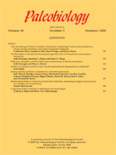
PALEOBIOLOGY
Pioneering Research in the Evolution of LifePALEOBIOLOGY, published by Cambridge University Press, is a premier, peer-reviewed journal that stands at the forefront of research in paleontological sciences. With a robust commitment to advancing the study of the interactions between ancient life forms and their environments, the journal has established itself as a vital resource for researchers, professionals, and students in the fields of paleontology, ecology, and evolutionary biology. Spanning from 1975 to 2024, it boasts an impressive Q1 ranking in several categories, including Agricultural and Biological Sciences, Ecology, and Paleontology, indicative of its high impact and relevance in shaping contemporary scientific discourse. While the journal is not open access, it offers a variety of subscription and access options, ensuring broad distribution and visibility of published research. As a leader in its discipline, PALEOBIOLOGY aims to facilitate a deeper understanding of our planet's biological history, making it an essential publication for anyone interested in the dynamics of life across geological time.
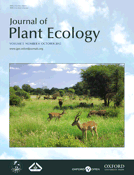
Journal of Plant Ecology
Unveiling Insights into Ecosystem DynamicsJournal of Plant Ecology, published by Oxford University Press, is a premier journal dedicated to advancing the scientific understanding of plant ecology. With an ISSN of 1752-9921 and an E-ISSN of 1752-993X, this journal has established itself as a leading resource in the field, maintaining a prestigious Q1 ranking across multiple categories in the 2023 Scopus rankings, including Ecology, Evolution, Behavior and Systematics and Plant Science. The journal's commitment to high-quality research is underscored by its influence in agricultural and biological sciences, reflected in its competitive percentiles. While currently not offering open access, its comprehensive scope spans various ecological issues critical to understanding plant interactions and ecosystems, making it an essential read for researchers, educators, and students alike. The Journal of Plant Ecology not only facilitates the dissemination of vital findings but also fosters collaboration within the global scientific community. Discover more about the latest innovative research and key developments in plant ecology, and contribute to the dialogue that shapes our understanding of environmental stewardship and biodiversity conservation.
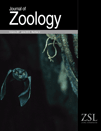
JOURNAL OF ZOOLOGY
Fostering understanding of wildlife and ecological challenges.JOURNAL OF ZOOLOGY, published by Wiley, stands as a premier scholarly journal in the fields of Animal Science and Zoology, renowned for its outstanding contributions to the knowledge of animal biology and ecology. With an impressive impact factor and a strong ranking in the Q1 category for Animal Science and Zoology, as well as Q2 for Ecology, Evolution, Behavior, and Systematics, the journal rigorously engages with both foundational research and groundbreaking discoveries since its inception in 1830. Located in Hoboken, New Jersey, this journal is dedicated to fostering the academic community's understanding of zoological sciences, providing access to important research that shapes wildlife conservation efforts and ecological studies. Although the journal does not currently offer open access options, it continues to attract significant attention, as evidenced by its strong Scopus rankings in related categories. Researchers, professionals, and students will find invaluable resources in the JOURNAL OF ZOOLOGY to advance their understanding of animal life and the ecological challenges it faces today.
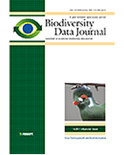
Biodiversity Data Journal
Bridging gaps in biodiversity research with accessible knowledge.Biodiversity Data Journal, published by PENSOFT PUBLISHERS, is a leading open-access platform that has been facilitating the dissemination of scientific knowledge since its inception in 2013. With a focus on enriching the fields of Agricultural and Biological Sciences, Animal Science and Zoology, Ecology, and Plant Science, this journal plays a pivotal role in promoting research outputs related to biodiversity, encompassing ecological data, species inventories, and conservation strategies. It has achieved commendable rankings in various categories, notably securing a Q2 rating in several key areas, indicating its growing influence within the academic community. The journal’s contribution to advancing the understanding of biodiversity is further enhanced by its commitment to open access, ensuring that vital research findings are widely accessible to researchers, professionals, and students worldwide. By publishing comprehensive datasets and innovative research, the Biodiversity Data Journal remains an essential resource for those looking to stay at the forefront of biodiversity science and environmental stewardship.